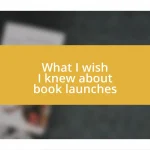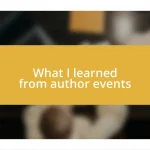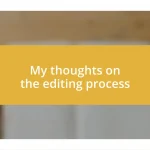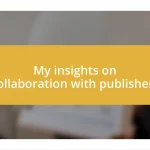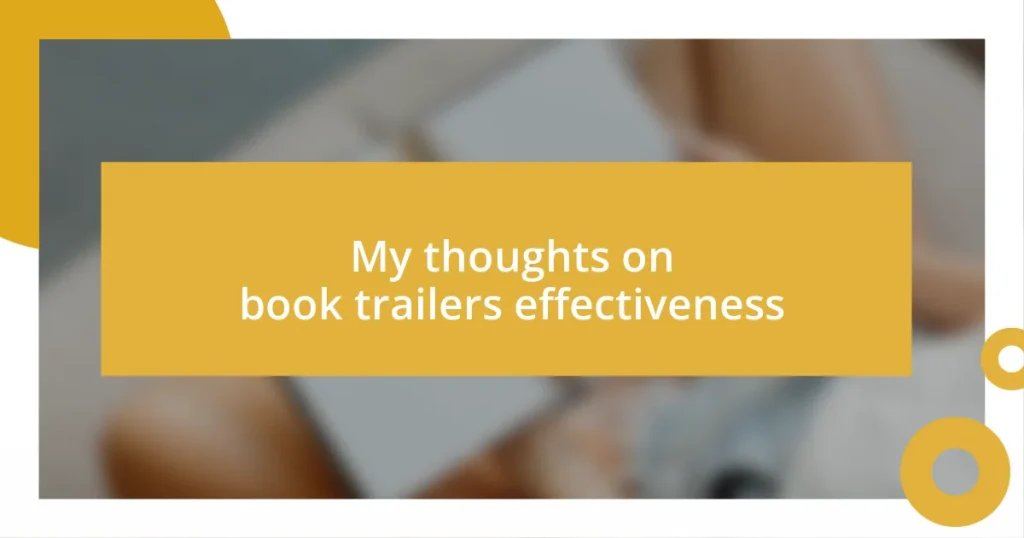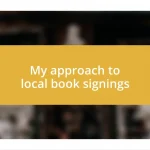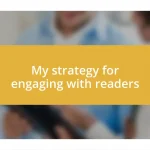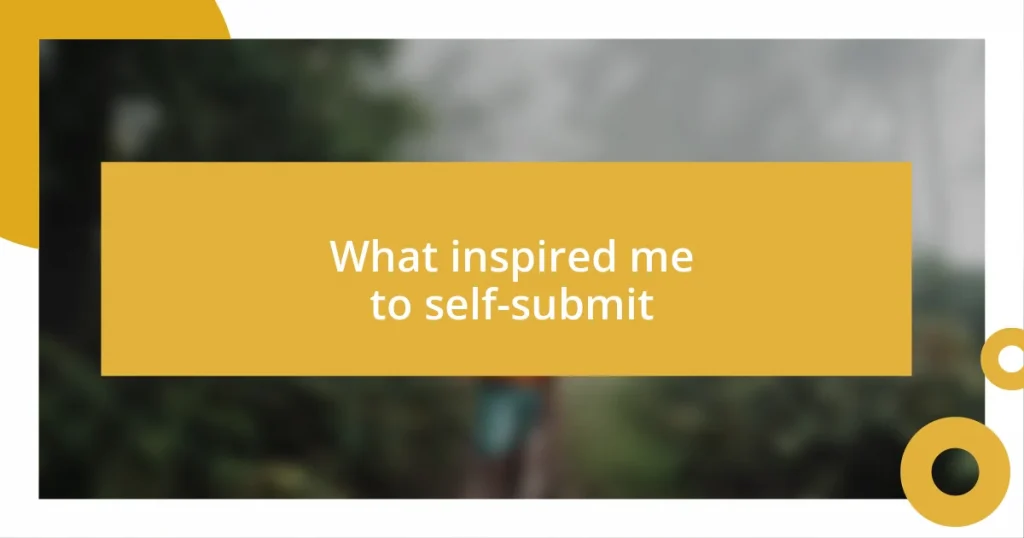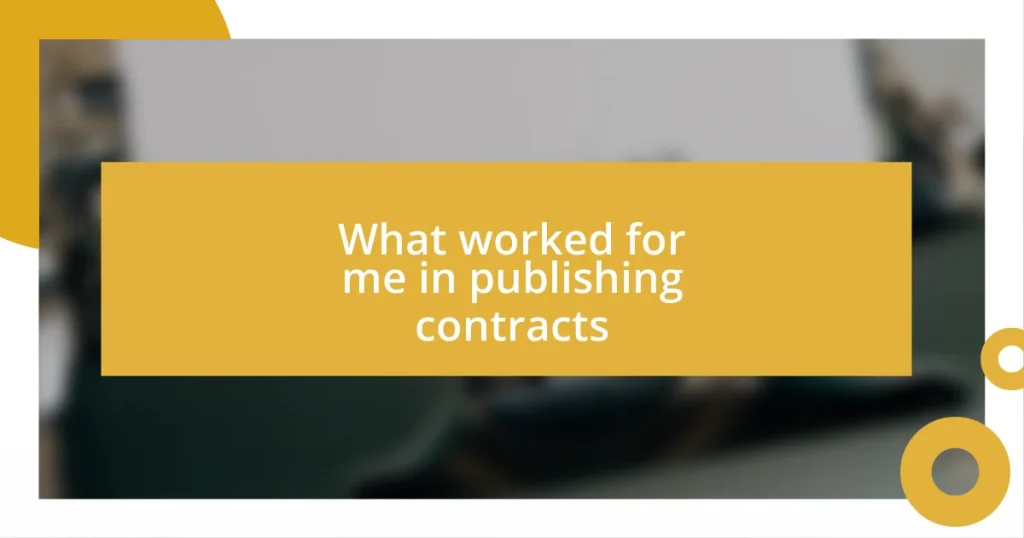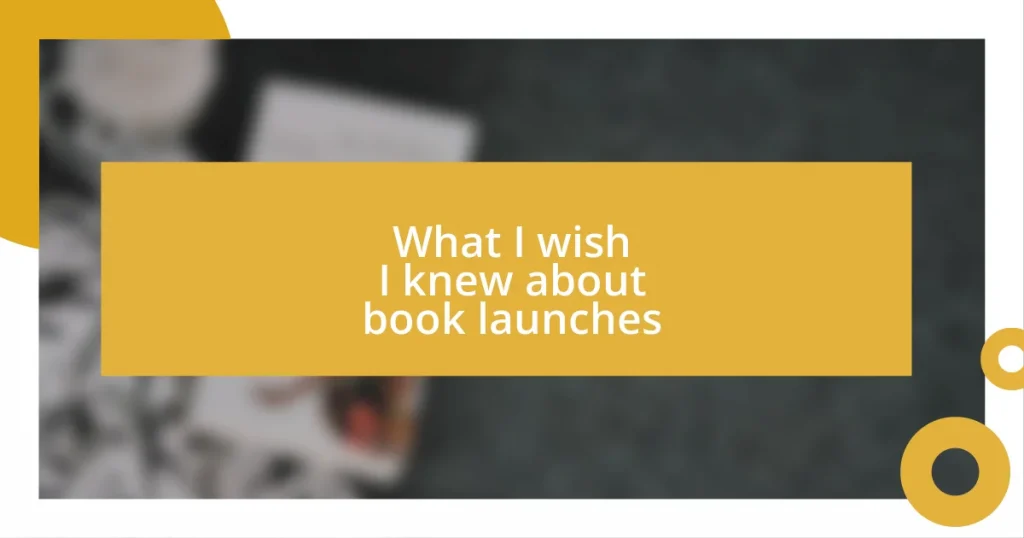Key takeaways:
- Book trailers effectively bridge written stories and visual engagement, evoking emotional connections that text may not convey.
- Trailers differ from previews in length, content focus, purpose, and production quality, with trailers aiming for deeper emotional resonance.
- Successful book trailers can spark conversations and expand a book’s reach, contributing to community and personal engagement beyond mere sales.

Understanding book trailers importance
Book trailers serve as a captivating bridge between the written word and visual storytelling. I remember the first time a beautifully crafted book trailer caught my attention; it was for a novel that I hadn’t even considered reading before. Does that spark of curiosity not illuminate the way forward to discover new worlds within pages?
The emotional weight book trailers can carry is significant. They distill the essence of a story into a brief visual experience, often evoking feelings that a simple blurb can’t capture. I recall feeling a rush of excitement and anticipation when a trailer highlighted not only the plot but also the emotional journey of the characters. That connection can ignite a reader’s passion in a way words alone sometimes fail to do.
Moreover, in today’s digital age, visuals are key to engagement. Think about it—when was the last time a striking image or video didn’t pull you in? Book trailers make a book stand out amidst the multitude of choices available. When I see a well-produced trailer, it feels like an invitation to a world I want to explore, making the idea of picking up that book more enticing than ever.

Differences between trailers and previews
When it comes to understanding the nuances between trailers and previews, I find it fascinating how each serves a unique purpose. A trailer is typically a polished, narrative-focused video that aims to generate excitement and encapsulate the essence of the story, often using dramatic visuals and emotional music. On the other hand, previews are usually shorter clips designed to provide a glimpse of the content, often highlighting key moments without revealing too much of the plot.
Here are some key differences to consider:
- Length: Trailers are generally longer (30 seconds to 2 minutes), while previews are often under 30 seconds.
- Content Focus: Trailers build suspense and showcase characters’ journeys, whereas previews may focus more on action or eye-catching moments.
- Purpose: The goal of a trailer is to create anticipation and emotional engagement, while previews often serve to inform viewers quickly about a book’s existence.
- Production Quality: Trailers tend to have higher production values and are often crafted by skilled teams, while previews might not always undergo the same level of polish.
From my experience, I find that trailers can create a much deeper connection with potential readers, sparking an emotional resonance that a quick preview simply cannot achieve. Each time I see a well-crafted trailer, it’s like I’m getting a personal invitation, while previews feel more like a fleeting introduction.

Target audience for book trailers
When considering the target audience for book trailers, I often think about the diverse groups that can be drawn in by these visual snippets. For instance, avid readers are always on the lookout for new experiences, and a compelling trailer can pique their curiosity. Yet, I’ve noticed that younger audiences, who tend to consume more content through screens, might respond even more strongly to well-crafted trailers. Their familiarity with digital media makes a striking visual impression an essential element in capturing their interest.
In my experience, genre plays a critical role in defining the target audience for book trailers. Romance fans might be more inclined to pursue stories that showcase emotional connections, while thriller enthusiasts may be drawn to the suspenseful elements highlighted in trailers. I’ve seen this firsthand; when I stumbled upon a nail-biting trailer for a psychological thriller, it had me instantly hooked! It’s fascinating to see how different genres can effectively tap into the emotional cores of distinct groups, creating tailored experiences that resonate.
Moreover, the platform used to showcase these trailers can also impact who engages with them. Social media platforms like Instagram and TikTok tend to attract younger demographics, while YouTube may appeal to a broader audience that enjoys longer content. I remember sharing a book trailer on my social media—within hours, I could see how it reached not just my friends but a wider network of readers. It highlighted the importance of understanding not only the audience’s tastes but also where they spend their time online.
| Audience Type | Key Characteristics |
|---|---|
| Avid Readers | Seek new stories and experiences; respond well to emotional connections. |
| Young Adults | Favored by visuals and narratives; proficient in digital media, necessitating attention-grabbing content. |
| Genre Enthusiasts | Drawn to specific emotional or thematic elements related to favorite genres. |
| Social Media Users | Engage with quick, dynamic content; often influenced by friends and trends. |
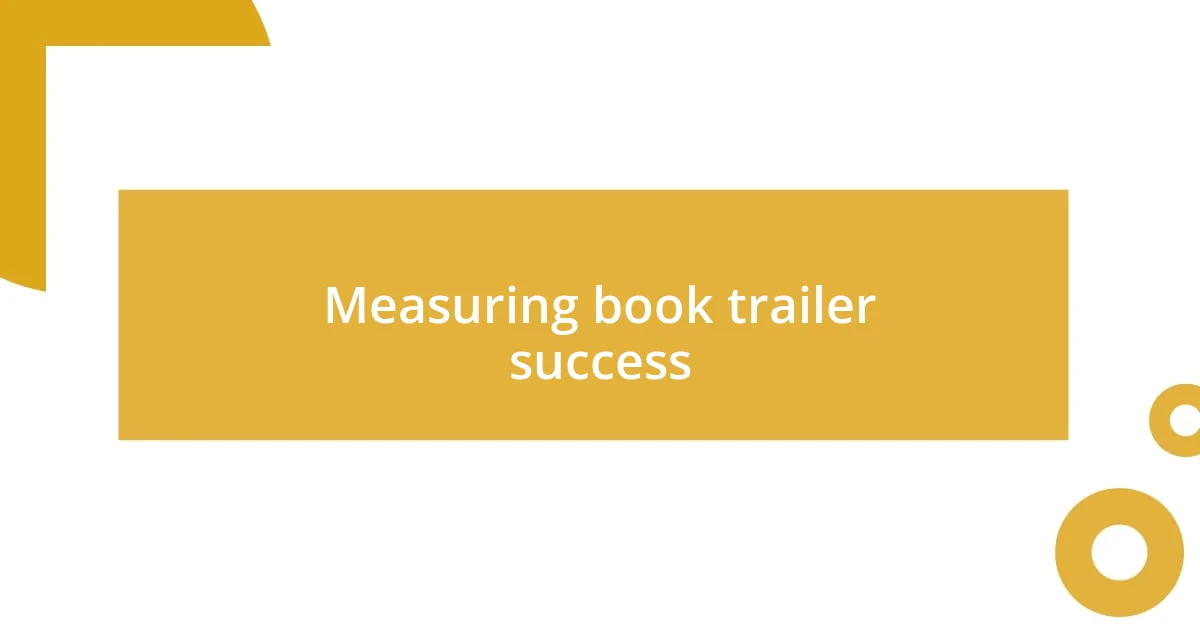
Measuring book trailer success
When it comes to measuring the success of a book trailer, I truly believe that viewing metrics like views, shares, and engagement rates offers valuable insights. For instance, I once shared a trailer on social media and was thrilled to see not only the number of views skyrocket but also a surge in comments and shares. It felt like the trailer sparked conversations among friends, which is a testament to its effectiveness. How often do we see a video that compels people to discuss and recommend a book to others? That’s the kind of engagement we want to strive for.
Beyond simple numbers, I often reflect on the quality of viewer interactions, as it can reveal deeper sentiments about the trailer’s impact. Feedback from viewers can provide anecdotal evidence of the trailer’s resonance—comments like, “I have to read this!” or “That really moved me!” speak volumes. I remember receiving a message from a fellow reader who said that a specific scene in the trailer reminded her of her own life experiences, making her eager to dive into the book. That emotional connection is essential and not easily captured by statistics alone.
Another often-overlooked aspect is how book trailers can contribute to broadening a book’s reach beyond the initial audience. I’ve seen trailers generate buzz at literary events, with attendees discussing them long after the event ends. The excitement generated from a well-crafted trailer can sometimes translate into increased sales and preorders, but I think it’s also about creating a lasting impression that keeps the book in readers’ minds. Can we really measure success solely through sales numbers when there’s an entire community being inspired by that short glimpse? It’s a question worth pondering.

Best platforms for sharing trailers
When it comes to sharing book trailers, I’ve discovered that different platforms can significantly impact engagement levels. For instance, I’ve had great success using Instagram Stories and TikTok—they’re perfect for capturing attention in a matter of seconds. The short, punchy format allows trailers to resonate with those who quickly scroll through their feeds looking for something that catches their eye.
YouTube is another platform I find incredibly effective. The longer format lets you delve deeper into a trailer, adding layers of storytelling that can really hook potential readers. I remember posting a trailer there and receiving comments from viewers who appreciated the behind-the-scenes insights I shared in the description. It transformed a simple trailer into a mini-experience, allowing me to connect with my audience beyond just visuals. Have you ever noticed how trailers that spark a discussion can turn viewers into readers? That’s the kind of connection that YouTube helps foster.
Lastly, I can’t overlook the power of Facebook groups centered around genres or reading communities. I’ve joined several book clubs there where members share trailers, leading to intense discussions. It’s intriguing how these communal spaces can amplify a trailer’s reach, making it feel like a group discovery rather than a one-off promotion. Have you experienced the thrill of sharing something that sparks a conversation among passionate readers? I believe it’s in those moments that a simple trailer can bloom into a shared love for a story, extending its influence far beyond the original post.

Case studies of successful trailers
One case that stands out in my mind is the trailer for “The Hunger Games.” I vividly remember the buzz it created—it wasn’t just about the visuals, but the emotions it evoked. The intense imagery and the haunting soundtrack drew people in, compelling them to discuss not only the trailer but also the themes of survival and rebellion. It was fascinating to see how this trailer galvanized a community of readers who felt an immediate connection to the characters.
Another remarkable example is the trailer for the book “The Fault in Our Stars.” I still recall the emotional impact it had on viewers. The trailer didn’t just present scenes from the book; it captured the essence of young love and struggle that resonated deeply with many. I had friends who shared the trailer, expressing how it reminded them of their own stories. That shared vulnerability made it a cultural phenomenon, transcending mere promotion and touching hearts.
Lastly, I remember the trailer for “The Night Circus.” It was a visual masterpiece, filled with enchanting imagery and an air of mystery. I shared it with my book club, and everyone was stirred by its magic. The trailer opened up a discussion about the genre and the unique storytelling style. It wasn’t just a video; it became a portal to a world we were eager to explore together. Can a trailer really turn casual viewers into book lovers? I believe that when done right, it absolutely can.


